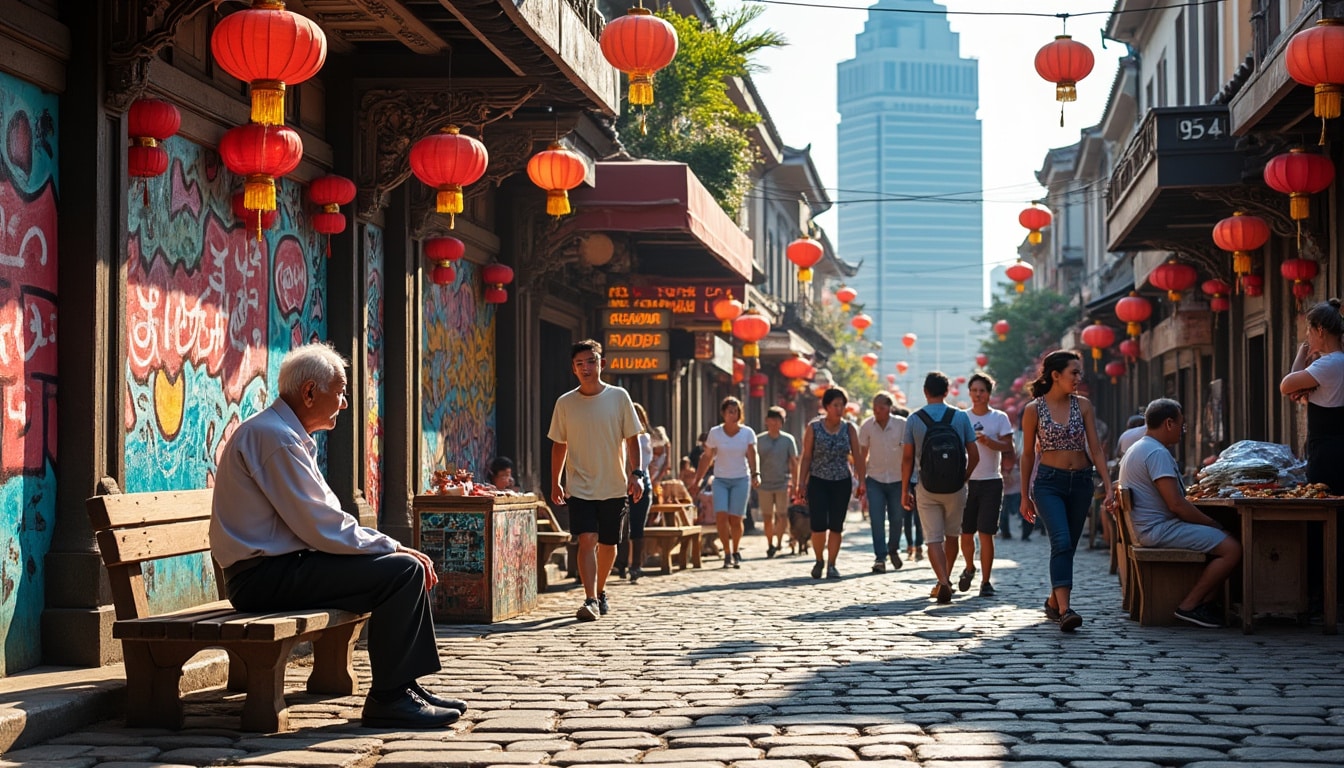Macau, nestled on the southern coast of China, is well known for its glittering casinos and bustling streets that draw visitors from around the globe. Yet beneath the vibrant exterior lies a complex tapestry of social and discrimination issues that affect the daily lives of its residents. This region, which operates under the “One Country, Two Systems” policy, experiences unique human rights challenges, including constraints on freedom of expression, risks faced by ethnic minorities and migrant workers, and gender-based disparities. Understanding these issues is essential for those who seek to navigate Macau’s societal landscape—not just for visitors, but for residents striving to build a more equitable community.
Human Rights in Macau: Addressing Key Concerns
In the ever-evolving socio-political environment of Macau, the debate around human rights remains pertinent. Although the Basic Law of Macau upholds certain freedoms, such as expression and assembly, there remain significant restraints in practice. Critics have expressed concerns about limited space for dissent and restricted media freedoms. For instance, censorship and self-censorship are common, with many media outlets avoiding topics that could spur government backlash. This creates a muted public arena, hindering the dialogue necessary for democratic participation and reform.
The dilemma extends to marginalized groups, such as migrant workers and ethnic minorities, whose rights remain inadequately protected. Exploitation and discrimination run rampant, with reports indicating a lack of access to essential services like healthcare and social welfare. Marginalized populations often face language barriers, further isolating them from accessing rights and services. Additionally, the judiciary’s supposed independence in Macau is sometimes questioned due to reports of political interference that undermine trials’ fairness and justice.
Women’s and children’s rights also bring significant concerns. Persistent gender-based violence, limited access to reproductive health services, and insufficient protections highlight the inequalities women face. Children, too, face hurdles, with inadequate systems to protect their interests fully, from education to welfare.
| Human Rights Issue | Concerns | Challenges Faced |
|---|---|---|
| Freedom of Expression | Media restrictions, censorship | Limited public dialogue, self-censorship |
| Rights of Migrants | Exploitation, inadequate access to services | Language barriers, discrimination |
| Gender Inequality | Gender-based violence, reproductive rights | Insufficient protections, societal norms |
| Judiciary Independence | Political interference | Compromised justice, unfair trials |
Efforts to address these human rights challenges require greater transparency and accountability, supported by international human rights organizations like Amnesty International and Human Rights Watch which remain pivotal in advocating for reform and supporting local efforts aimed at promoting justice and equality for all residents.

The Evolution of Social Movements for Democracy in Macau
In recent years, social movements in Macau have evolved significantly, gaining momentum and scope in response to the region’s dynamic political landscape. These movements are spearheaded by civil society organizations, advocacy groups, and proactive citizens who champion democratic reforms, transparency, and civil liberties. The diversification of strategies has been a key development, with activists employing a wide array of methods beyond traditional protests.
One notable strategy is grassroots mobilization, where local communities are engaged to advocate for change. This is seen in actions like community workshops and public events where individuals can gather, exchange ideas, and build solidarity. Such grassroots efforts are vital in fostering a sense of empowerment and unity among residents, amplifying their voices in a collective call for reform.
- 🌐 International Collaboration: Social movements are increasingly tapping into international networks, seeking solidarity from global human rights organizations, governments, and institutions. This support enhances the visibility of Macau’s democratic efforts on the world stage.
- 📢 Media Campaigns: Leveraging both traditional and social media platforms, activists have been able to widen their reach. Creative campaigns that include storytelling and emotive appeals help raise awareness and galvanize public support.
Legal advocacy is another cornerstone of these movements, where activists in Macau work tirelessly to leverage the legal system to challenge rights violations and push for evidenced-based policy reform. By submitting petitions and engaging with international bodies, activists strive to hold authoritative bodies accountable while advocating for enhanced rights protections.
| Strategy | Description | Impact |
|---|---|---|
| Grassroots Mobilization | Engaging local communities for advocacy | Empowerment, unity, collective calls for change |
| International Collaboration | Seeking global solidarity and support | Increased visibility, pressure on local authorities |
| Media Campaigns | Raising awareness through creative approaches | Wider reach, public support |
| Legal Advocacy | Utilizing the legal system for rights reforms | Increased accountability, policy reform |
The resilience and adaptability of Macau’s social movements highlight the unwavering commitment to pursuing greater democratic rights. Organizations like the Macau Anglican Church, the Macau Catholic Diocese, and the Macau Jewish Community have also played significant roles, providing platforms for dialogue and spaces for community building.
Civil Society Organizations: The Backbone of Human Rights in Macau
Civil society organizations (CSOs) are a pivotal force in fostering human rights within Macau. These organizations act as watchdogs, advocates, and social support structures, delivering critical interventions across a spectrum of domains. They operate in an environment where international standards are not always enforced, thereby filling gaps in protection and advocacy.
One essential role of these organizations is advocacy and awareness-raising. By organizing educational programs, workshops, and public discussions, CSOs raise awareness about human rights issues, encouraging both the public and policymakers to take concrete actions. Prominent organizations like the Macau Volunteer Centre and the Macau Association for the Promotion of Gender Equality illustrate such endeavors.
- 📊 Monitoring & Reporting: CSOs such as the Equal Opportunities Commission play a critical role in documenting human rights violations, compiling reports that inform both local governance and international watchdogs.
- 👐 Empowerment & Support: By offering support services and empowerment programs, particularly for marginalized groups such as women, migrants, and the LGBTQ+ community, CSOs help individuals realize their rights and overcome discrimination.
The power of CSOs is markedly evident in their influence on public policy. Through lobbying efforts, these organizations urge governments to amend laws and policies that fail to meet the needs of certain groups. The collective efforts of CSOs have resulted in legislative reforms like the Law Against Domestic Violence, which provides greater protections to victims.
| CSO Function | Description | Outcome |
|---|---|---|
| Advocacy & Awareness | Promoting understanding of human rights issues | Increased public engagement, policy action |
| Monitoring & Reporting | Documenting human rights abuses | Informed governance, international awareness |
| Empowerment & Support | Providing assistance to marginalized groups | Access to rights, reduced discrimination |
As civil society in Macau continues to grow stronger, it plays an indispensable role in upholding human rights by ensuring transparency, accountability, and social justice. The collaboration of local efforts with international partners, such as Amnesty International, further solidifies the impact of these organizations.
Discrimination Challenges Faced by Macau’s Marginalized Groups
Marginalization remains a prominent issue in Macau, affecting the ability of several groups to secure their fundamental human rights. Among those most affected are ethnic minorities, migrant workers, and the LGBTQ+ community. Ethnic minorities, often from less developed regions, face discrimination in employment, education, and housing, impeding their ability to attain equal opportunities.
Migrant workers form a significant portion of Macau’s workforce but frequently encounter exploitative conditions. Reports of withheld wages, unsafe working environments, and extended work hours without proper pay are not uncommon. Moreover, their precarious legal status prevents them from accessing remedies, amplifying their vulnerability to abuses and discrimination.
- 🛑 Language Barriers: Language remains a contentious issue, particularly for non-Chinese speaking migrants, facilitating social exclusion and deterring their capacity to advocate for themselves effectively.
- 🚫 Lack of Representation: Many marginalized groups find themselves underrepresented in decision-making bodies, limiting their influence on policies that directly impact their lives.
- 🔒 Poverty & Resources: Limited access to financial and social resources further exacerbates marginalization, restricting access to legal services and social support frameworks.
The LGBTQ+ community in Macau also faces substantial challenges. Despite some progress, legal protections for LGBTQ+ individuals remain limited, with no comprehensive anti-discrimination laws based on sexual orientation or gender identity. Consequently, social stigma persists, leading many to conceal their identities out of fear of backlash and exclusion.
| Group | Challenges Faced | Impact |
|---|---|---|
| Ethnic Minorities | Discrimination in employment, education | Limited opportunities, social exclusion |
| Migrant Workers | Exploitation, unsafe working conditions | Vulnerability, lack of legal protection |
| LGBTQ+ Community | Legal protection gaps, social stigma | Identity concealing, lack of community support |
Efforts to alleviate these challenges require comprehensive policy reforms, increased advocacy for inclusive legislation, and robust support systems that bolster minority voices. The Macau Youth Federation is among organizations spearheading initiatives to foster inclusive environments by promoting diversity and challenging prevailing discriminatory norms.
Impact of Economic Factors on Human Rights in Macau
The economic backdrop of Macau plays a pivotal role in shaping the human rights landscape, influencing various aspects of social justice and opportunity. As Macau experiences rapid economic growth driven primarily by gaming and tourism, stark income inequality has become a prevalent issue, exacerbating existing social divides.
High levels of unemployment, especially among segments of the population such as youth and migrants, pose significant challenges. Unemployment not only perpetuates poverty but also restricts access to essential services like healthcare and education, further entrenching inequalities. The disparity is also reflected in the housing sector, where skyrocketing property prices and limited affordable housing options have rendered adequate accommodation inaccessible for many.
- 💰 Income Inequality: Rising wealth gaps continue to widen disparities, affecting access to basic human rights like education, health, and adequate living conditions.
- 🔨 Labor Exploitation: The economic boom has attracted multinational corporations, which, while offering job opportunities, sometimes engage in exploitative labor practices that violate international human rights standards.
- 🏠 Housing Affordability: The real estate market’s escalation puts housing beyond reach for many, impacting the right to adequate living and compounding socio-economic insecurities.
In addressing these inequities, there is a crucial role for the government and civil society to play in implementing strategic measures like increasing access to affordable housing, reinforcing employment protections, and promoting equitable wealth distribution. An ongoing dialogue needs to be fostered to ensure that economic development aligns with human rights principles, benefiting all sectors of society equitably.
| Economic Factor | Human Rights Impact | Challenges |
|---|---|---|
| Income Inequality | Access to essential services | Widening disparities, social divides |
| Unemployment | Restricts access to rights | Poverty, limited opportunities |
| Housing Costs | Right to adequate living | Unaffordable accommodation |
Addressing these economic challenges, while ensuring sustainable development and upholding human rights standards, remains vital for Macau to progress towards creating a fair and just society. Working alongside organizations like the Society for the Protection of Unborn Children, a holistic approach can be cultivated to ensure that even the most vulnerable demographics are afforded their rights and a chance to thrive.
FAQs
- 🔍 What are the key barriers to freedom of expression in Macau?
Limited media freedom, pervasive censorship, and self-censorship are primary barriers, restricting open dialogue and critical reporting. - ❓ How does the “One Country, Two Systems” policy affect Macau?
It provides a framework for Macau’s autonomy in legislative and judicial matters, but concerns about potential Chinese central government interference remain. - 💡 How does economic inequality impact human rights in Macau?
Economic inequality limits access to basic necessities like healthcare and housing, perpetuating social divides and human rights challenges. - 📘 What role do international NGOs play in supporting human rights in Macau?
NGOs advocate for human rights, build capacity, offer training, and provide legal assistance to address violations and promote justice.

Legal Information and Rules in Macau
In 2025, Macau continues to stand as a captivating blend of East and West. A Special Administrative Region of China, it thrives on its rich cultural heritage, vibrant casinos, and unique blend of Portuguese and Chinese legal traditions. This article…
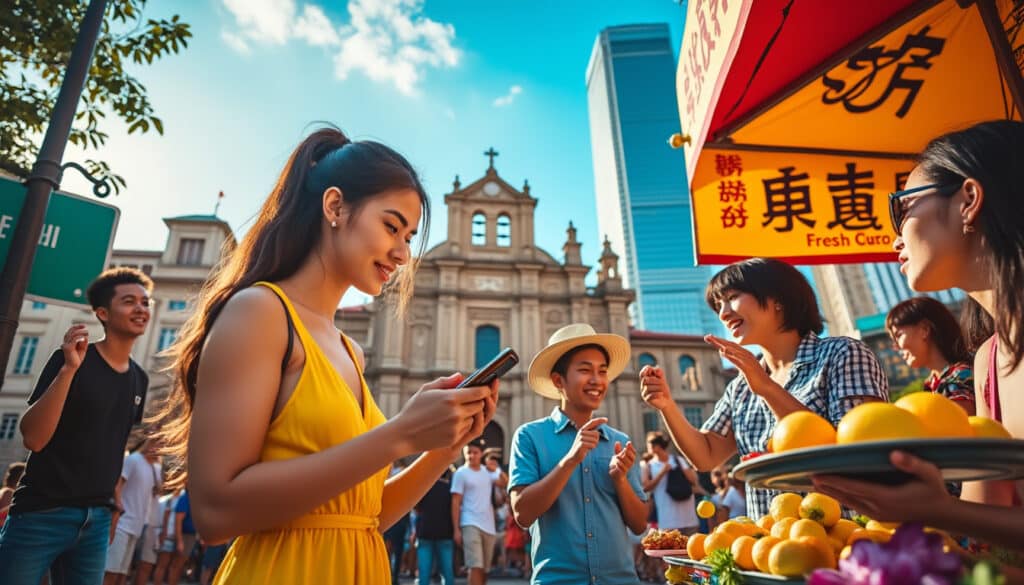
Calling and communication rules in Macau
Macau, a vibrant blend of Eastern and Western cultures, is not only renowned for its bustling casino scene and historic architecture, but also for its dynamic communication infrastructure. Whether connecting with business associates or loved ones, understanding the calling and…
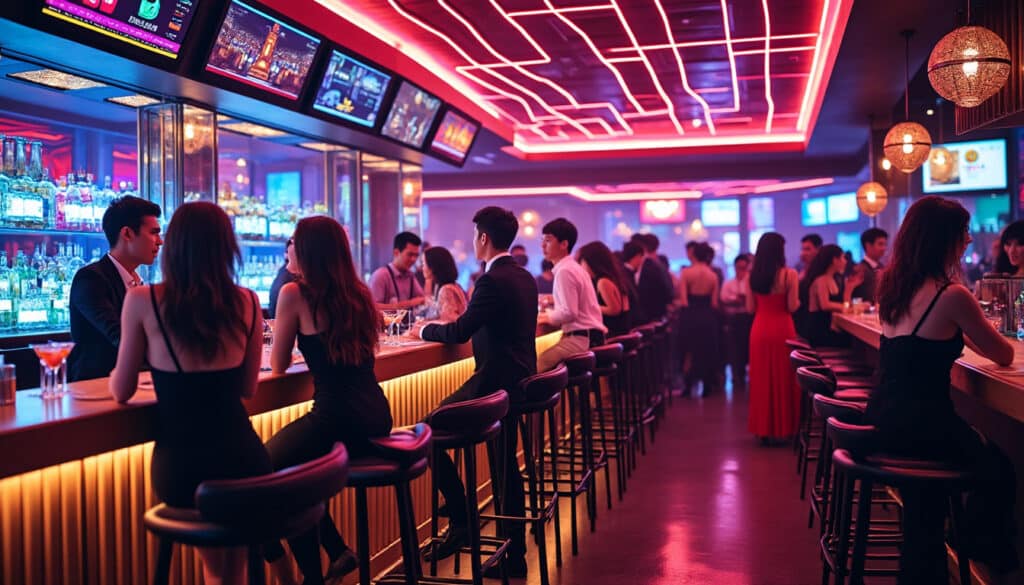
Drinking and age restrictions in Macau
Macau has long been a vibrant hub known for its bustling mix of casinos, cultural heritage, and a lively nightlife that attracts tourists from all around the globe. As of November 2025, this dynamic city is making headlines not only…
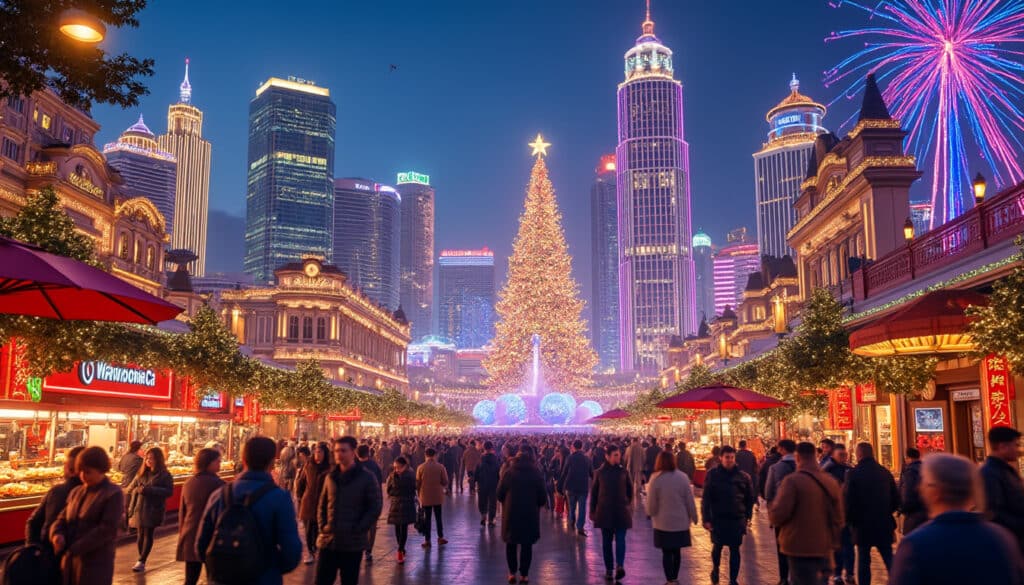
Macau, a vibrant fusion of Portuguese and Chinese influences, offers a fascinating tapestry of holidays and celebrations throughout the year. Known for its stunning casinos and luxury resorts such as Wynn Macau and The Venetian Macao, this enchanting city is…
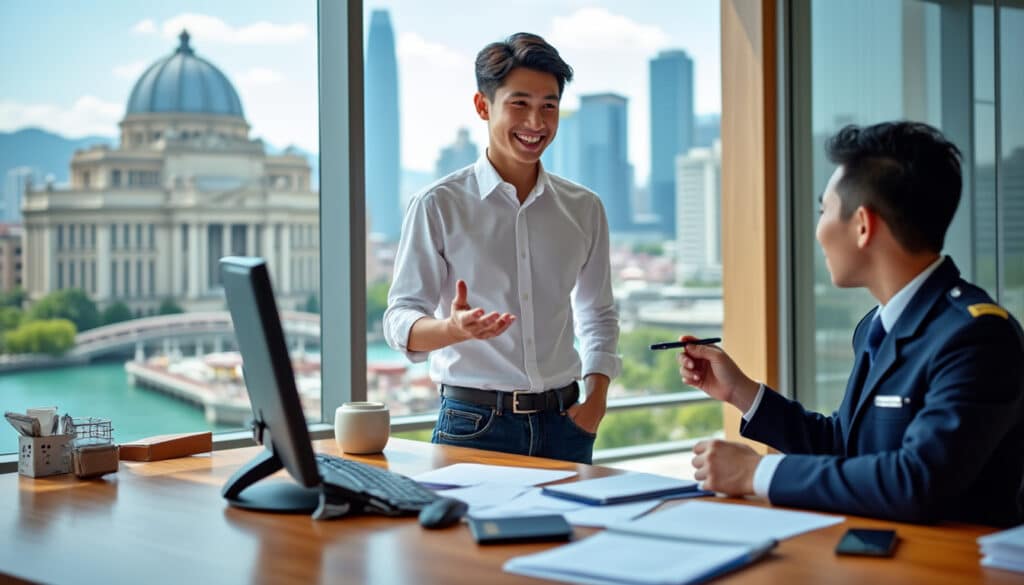
Moving to Macau, the glittering oasis of culture and entertainment in Asia, can be a thrilling prospect for many expats and digital nomads. Known for its unique blend of Portuguese and Chinese influences, Macau offers not only a high quality…
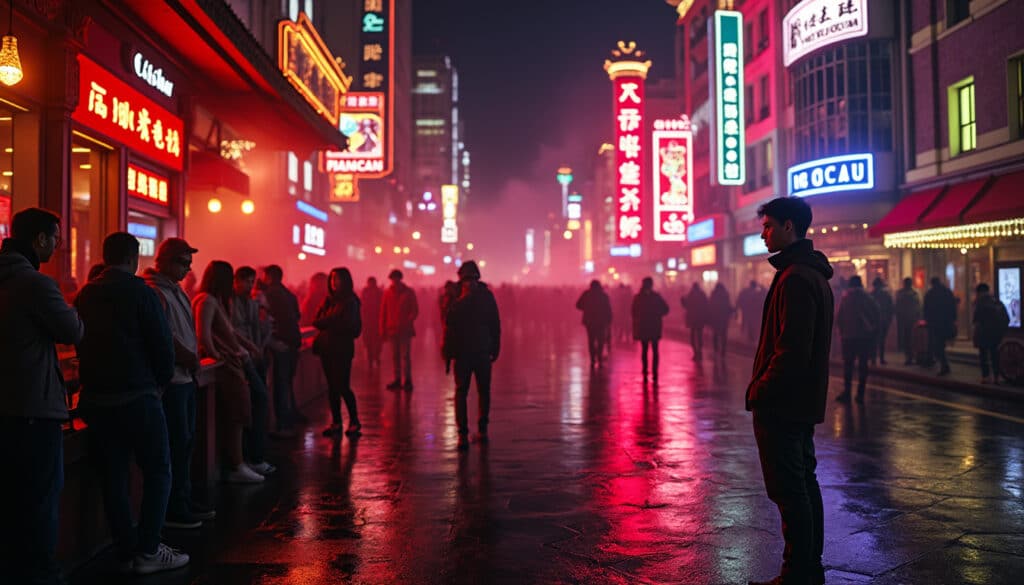
Smoking, drugs, and red light laws in Macau
Macau, often heralded as the Las Vegas of Asia, offers an exciting blend of glitzy casinos, rich cultural heritage, and vibrant nightlife. Nestled in this luxurious backdrop lies a fascinating intersection of smoking, drug, and red-light laws that contribute to…
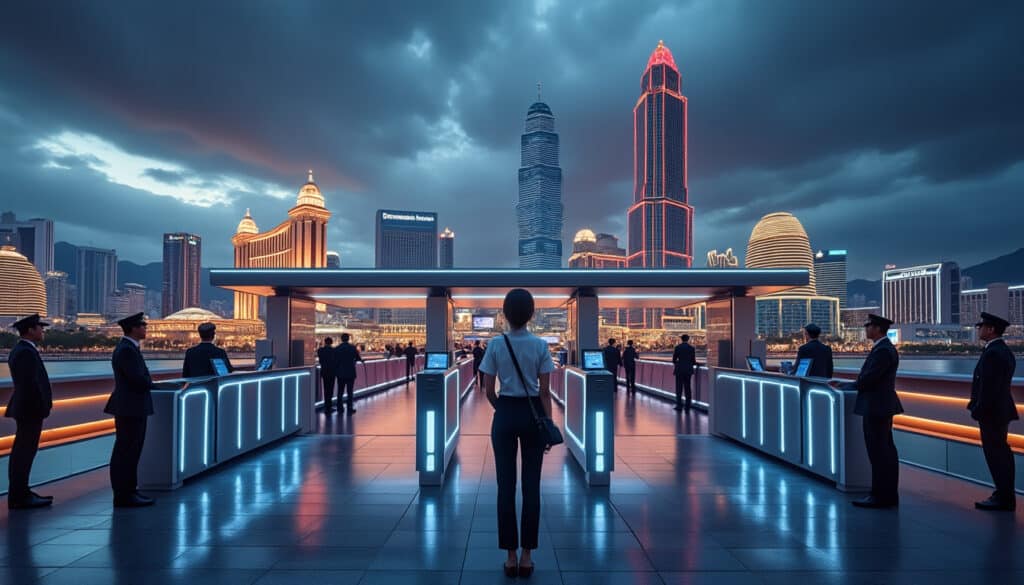
Criminal status and entry to Macau
Navigating the world of entry requirements for Macau can be complex, especially for individuals with a criminal record. As a vibrant city known for its blend of Portuguese and Chinese culture, Macau attracts tourists and professionals alike. However, understanding the…

